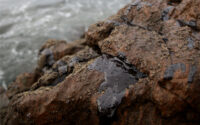Oil Spills: How Does It Happen?
What is an oil spill?
An oil spill is known as liquified petroleum being spilled into the marine environment. This usually happens due to accidents prompted by oil suppliers such as BP, Shell and etc. Usually, these accidents are caused by tankers, pipelines, or drilling rigs.
How do oil spills affect marine life?
Oil spills have been deemed harmful to marine animals such as marine birds, fishes, shellfishes, and many more. Oil posses properties that remove the water repellent feature in most marine mammals or animals such as sea otters or marine birds.
This is especially detrimental to them as they rely on the water repellent feature to keep themselves warm in the water. Upon losing that, they will very likely die due to hypothermia.
Other animals such as sea turtles or whales have lungs, which means they are prone to breathing the oil in. This will cause lung complications and affect their reproduction. Fishes that come in contact with mixed waters will be “handicapped” with unusually large livers or even face reproduction issues.
What are the causes of an oil spill?
There are a few causes of oil spills, that are due to either natural causes or human activities.
Oil Tanker Spills
Oil tankers are large marine tankers that transport a big bulk of oil from one place to another via sea routes. Oil tanker spills usually occur due to accidents such as ship collisions or fire breakouts in the ship. Once the ship sinks, the oil will be spilled into the marine environment.
One of the classic events of oil tanker spills is the Amoco Cadiz tanker that broke in half after grounding unto the shoreline. The entire storage of crude oil leaked into the marine ecosystem, killing thousands of marine animals in the accident.
Natural Causes
Sometimes, oil spills cannot be controlled as they are caused by natural disasters such as earthquakes or tsunamis. When an earthquake or tsunami happens, storage tanks might be damaged and pipelines are likely to burst, causing the leak to happen.
Illegal Oil Shipping or Transfers
Illegal oil shipping or transfers usually results in much higher accident rates due to poor regulation. Equipment failures or even unethical practices are often observed in these illegal activities, causing marine life to be affected severely.
How are the oil spills cleaned up?
There are a few main goals in cleaning up oil spills:
Stop the oil and chemical flow
In cases of oil spills, the response team will use equipment to stop the oil and chemicals that are floating on the surface of the water from flowing further away and contaminating larger parts of the sea.
Usually, the response team will use special equipment called boom. They are barriers that can float on the sea that contains the oil from spreading out. Besides, skimmers or scoopers are also used to either skim or scoop the oil out of the seawater before it starts spreading into marine nesting areas.
Enhance protection for sensitive areas
The response team will ensure that sensitive marine areas such as nesting areas are not affected by the oil spill by using specialized equipment. However, some types of oil will eventually evaporate without extra efforts
Remove the oil from marine environment in a quick and efficient manner
When oil spills happen, time is money. The response team will be moving quickly and efficiently to eliminate the oil that is floating on the sea.

